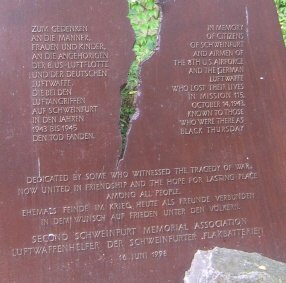
Fernandel
The night after we arrived in Paris we tested our French. We went to the movies and saw a comedy played broadly by Fernandel (Fernand Joseph Désiré Contandin). He spoke with an enormous cigar in his mouth and mumbled his lines. We couldn’t understand a word, let alone his regional accent.
The audience roared with laughter.
My wife cried. Two years of expensive Italian lessons!
Our first apartment was on the Boulevard Richard Wallace. It had an exquisite salon with wood painted panels. We lived across the street from the Bois du Boulogne. Facing us was the chateau of the Duke and Duchess of Windsor. We never saw them, but the maid we hired knew the maid they hired. Their servant reported the Duchess wore the Royal Seal of England embroidered on her silk underpants.
The dollar was mighty, and the Air Force had given me PX (Post Exchange) privileges. That meant American baby food for our son, Johnny Walker Black label, the best cashmere sweaters for Tuulikki, and Hermes ties at $5 for me.
We were lucky. The maid we hired, Marie Thêrese Jean was an extraordinary cook and a fine shopper. She bargained at the stalls for the freshest produce. She bought small fruits instead of large ones—les petits sont toujours plus doux. The smaller, the sweeter…les framboises du bois, raspberries from the woods.
Most of all she taught us the glories of French cooking. Her sauces were delicate, her vegetables were fresh and only slightly cooked, and her main courses were small and wrapped in the ancient secrets of haute cuisine. Her culinary fastidiousness became audible. We heard her draw her breath sharply as the preparation reached the climax. There was an exact temperature at which the heat of the sauce must met the warmth of the meat. That meant we had to sit down at the proper time. She also taught us the applicable wines for the meal.
Delicate and refined, she dared not address an obvious culinary and cultural problem.
The French large meal is served at midday, while Americans eat heavily at night. I’d have lunch and a glass of wine and go to sleep, only to awaken to another large meal and another glass of wine. I noticed that Marie Thêrese had a hard-boiled egg and tea for dinner. Our large meal then was changed to lunchtime.
Six months later, when I was sure he had forgotten my rejection of Meet Me at Maxim’s, we invited David Schoenbrun to lunch. We asked Marie Thêrese to buy the best red wine at the best liquor store in Neuilly.
She did. It was Le Chambertin. Legend says when Napoleon’s Army was marching south the command, “Eyes left!” was obligatory when passing by the village of Chambertin. Victor Hugo had said, “This wine should be drunk bareheaded while kneeling.”
David had one sip and pushed the glass away as if it contained poison.
David had not forgotten.
Image
Fernandel, undated photo: https://www.pinterest.com/pin/356277020495127116/





